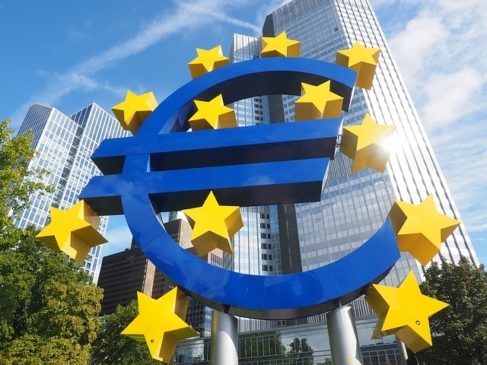- Europe is now calling for America to lead again – this time in the realm of cryptocurrencies.
- The European Union’s financial services chief is urging U.S. lawmakers to draw up sweeping new rules to govern the cryptocurrency industry that has been dubbed by U.S. Securities and Exchange Commission Chairman Gary Gensler as the “Wild West.”
While the vast majority of Americans have ancestors who hailed from Europe, the path of regulations in both continents have developed at a different pace and for different purposes.
The founding of the United States of America was in direct response to monarchies in Europe and globally, the U.S. continues to lead in financial innovation and regulation.
So it comes as no surprise that Europe is now calling for America to lead again – this time in the realm of cryptocurrencies.
One of the key barriers to greater adoption of cryptocurrencies is perhaps the lack of a unified and clear regulatory framework for a nascent asset class that respects no borders.
Which is why the European Union’s financial services chief is urging U.S. lawmakers to draw up sweeping new rules to govern the cryptocurrency industry that has been dubbed by U.S. Securities and Exchange Commission Chairman Gary Gensler as the “Wild West.”
Speaking at a visit to Washington, the European Commission’s financial services commissioner Mairead McGuinness said that any regulation imposed on the cryptocurrency industry would need to be global in order to work.
The same way that ICAO sets the standard that facilitates safe international air travel, if governments globally are serious about regulating cryptocurrencies, they will need a concerted and coordinated effort to develop regulations accordingly.
Although U.S. President Joe Biden has spoken about the importance of regulating the cryptocurrency industry, members of Congress are divided of how such regulation should work and what needs to be done.
The U.S. Securities and Exchange Commission has taken piecemeal action against select entities, but has stopped short of more consistent enforcement in the absence of overarching regulations that could determine the terms of engagement.
In the absence of regulatory clarity, individual investors have even taken to vigilantism, with groups of investors who lost collectively billions of dollars in a variety of scams and the TerraUSD collapse, taking matters into their own hands.
The TerraUSD collapse and that of its sister token Luna is estimated to have wiped out around US$40 billion of investor monies and disgruntled investors are said to be scouring the globe to find the whereabouts of Terra’s founder and creator Do Kwon.
An Interpol Red Notice has been issued for the arrest of Do Kwon, but he remains at large.
Other crypto personalities like Three Arrow Capital’s Zhu Su and Kyle Davies also remain incognito, even though liquidators and investors are said to be actively hunting them down as well.
U.S. congressional members remain divided as to which agencies are the most appropriate to police the cryptocurrency sector, whether it’s the SEC or the Commodities and Futures Trading Commission, with individual agencies themselves constantly engaged in turf wars.
For now, stablecoins are likely to be the first to be regulated, at least according to some members of Congress who are close to agreement of a first draft that would put stablecoins under the purview of the U.S. Federal Reserve and ban algorithmic stablecoins such as TerraUSD which arguably sparked off the Crypto Winter.




